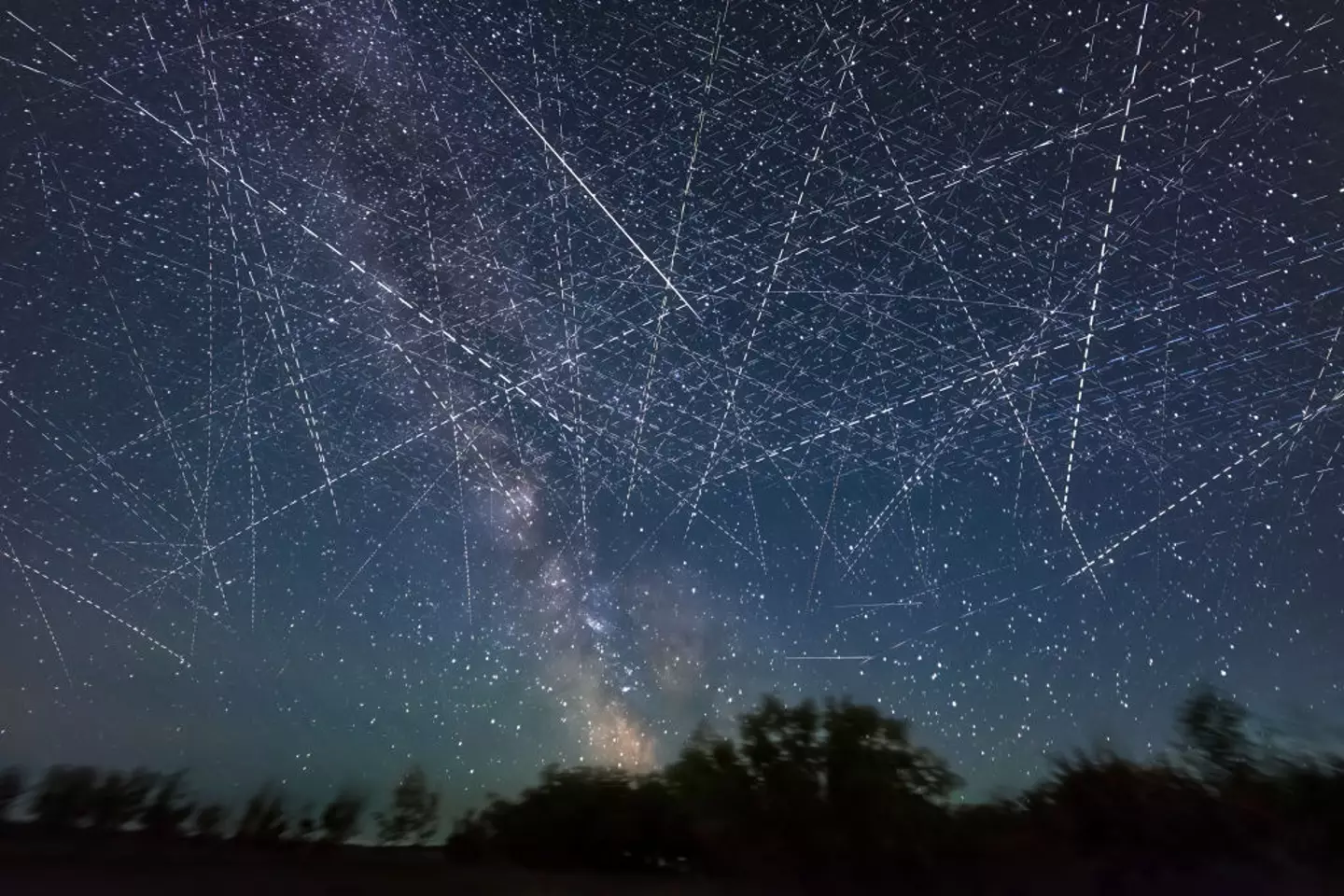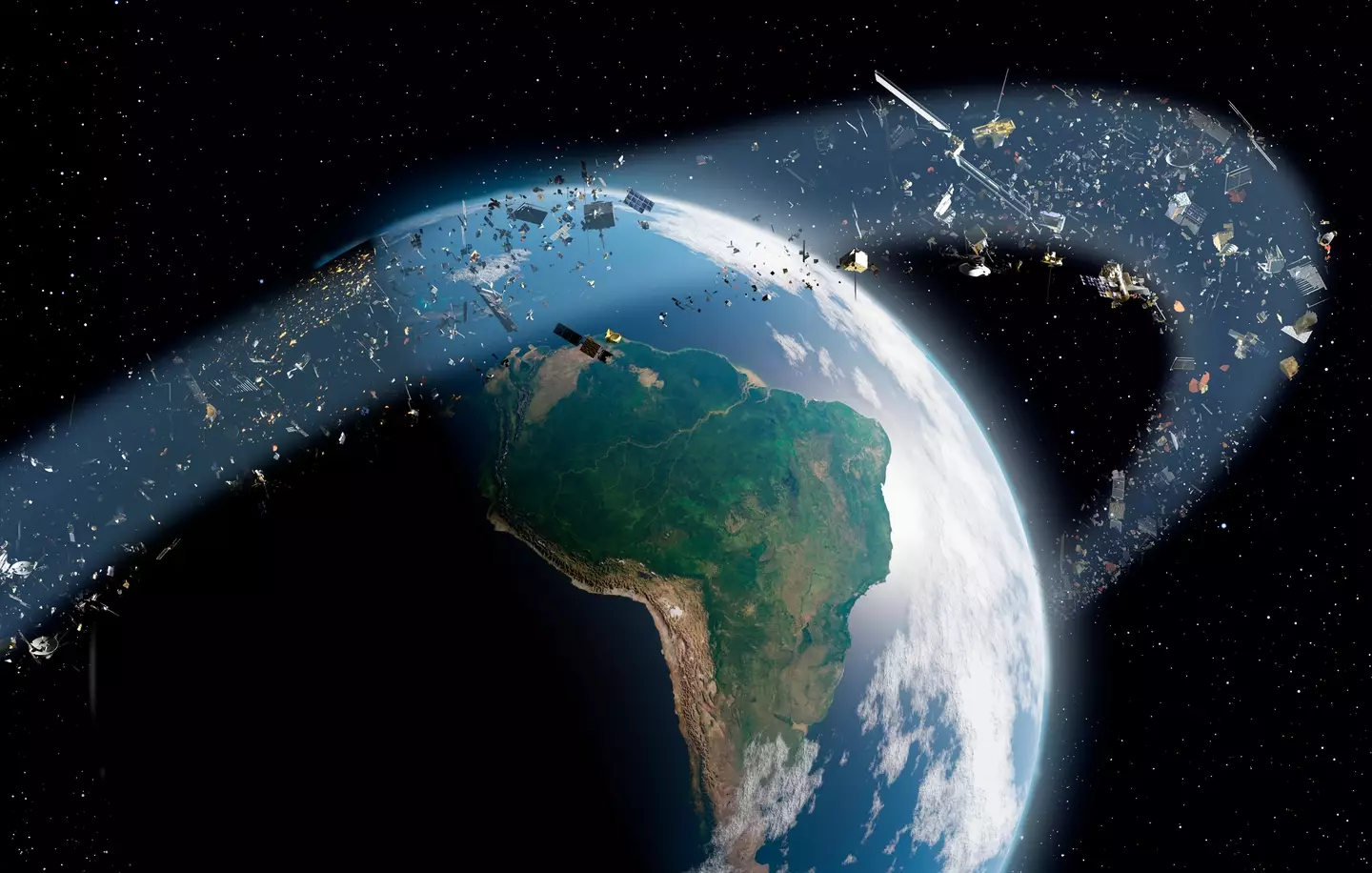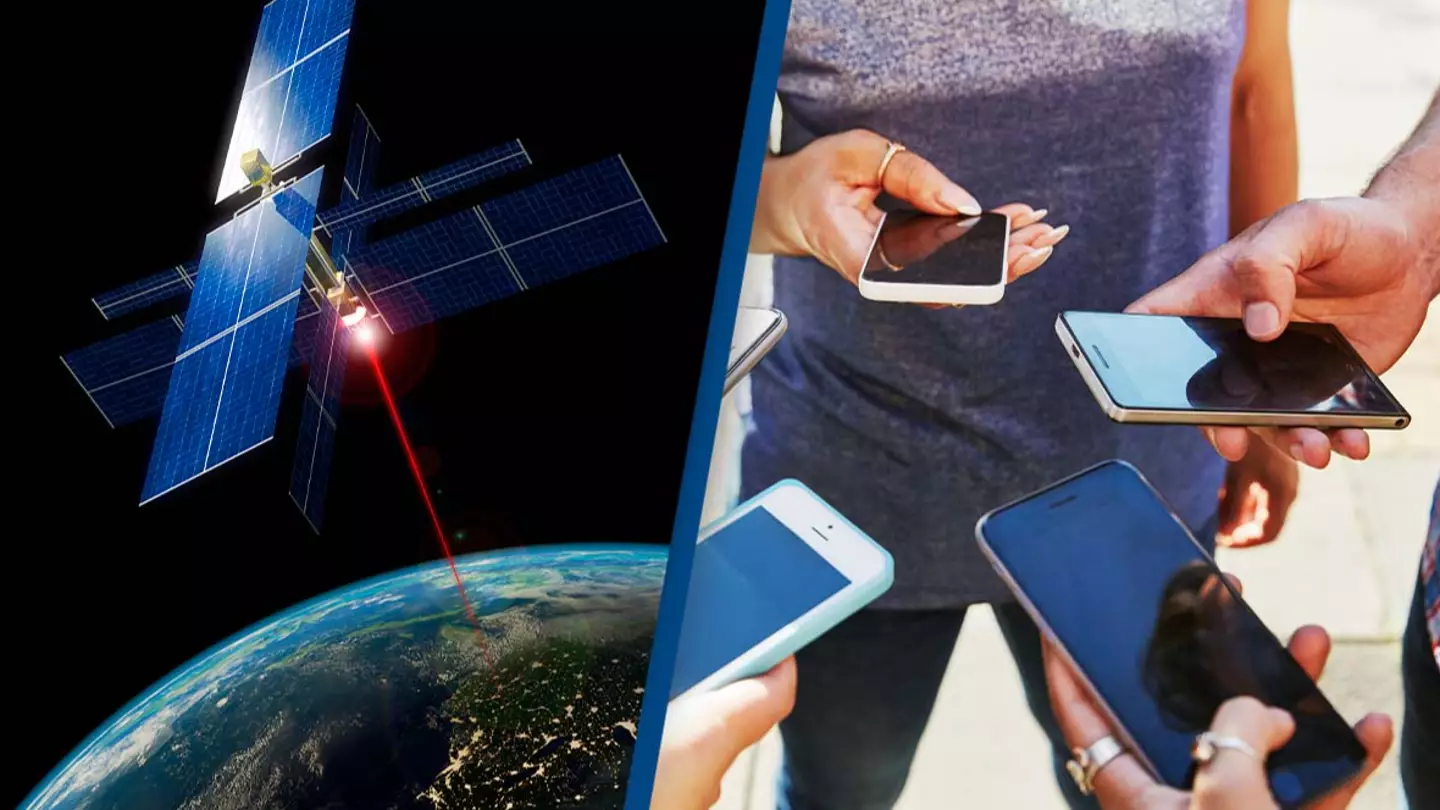Scientists have issued a strong warning over a backlog of 'space junk' which could put us Earthlings in 'imminent danger' if left unaddressed.
Kessler Syndrome is named after American astrophysicist Donal Kessler who was the first to warn masses of debris colliding in space could make for a slow-motion train wreck that pollutes the orbit.
While he issued the warning in 1978, scientists are now fearing the nightmare scenario could quickly become our reality as they observe each orbit is becoming more congested than the last.

Advert
Active satellites and other broken bits of debris, from booster rockets to wreckages from weapons tests, and even objects as small as loose screws from space capsules are all contributing to the estimated 130 million and more pieces of junk that are currently orbiting Earth.
The European Space Agency (ESA) claims some 1.1 million piece of debris measure between 0.4 to 0.04 inches wide, and 130 million in the 1-millimetre to 0.4-inch range, but some 40,500 pieces are longer than four inches.
The concern is that the junk is traveling extremely fast, whizzing around Earth at around 18,000 mph, almost seven times faster than a speeding bullet, according to NASA, and even the tiniest of fragments can cause considerable damage.
Despite some 650 collisions being considered major accidents in the last 68 years, planetary scientist and professor at the University of Arizona in Tuscon, Vishnu Reddy, said the number of space launches and subsequent debris in just the last four 'has increased exponentially'.

Driven by the rise of private space organizations and a 'new race' to the moon, launches have skyrocketed in the last 10 years, from an average of 82 per year between 2008 to 2017 to a whopping 133 per annum from 2018 onwards.
Reddy said: "We are heading towards the situation that we are always dreading."
There are already an eye-watering 1,000 crash warnings per day in the low-Earth orbit (LEO) zone, roughly 125 miles to 1,250 miles above our planet, which happen to sit at the orbital altitude where Elon Musk launched around 6,800 of SpaceX's Starling broadband satellites.
There are no signs of slowing down either with SpaceX hoping to increase its spacecrafts to 40,000 while other players from Amazon to China look to enter the ring with their own satellites.
However, scientists say debris in lower orbits aren't too much of a concern, as they naturally fall back to Earth or burn up in time.

It's the trash polluting GEO (geostationary orbit) that they say we need to worry about, as they can remain stuck in orbit for (literally) millennia and ramp-up the risk of dangerous high-speed collisions.
To make matters worse, a US Air Force weather satellite shattered into 50 fragments in December, just days before Christmas.
Dan Baker, director of the Laboratory for Atmospheric and Space Physics at the University of Colorado, Boulder, addressed the American Geophysical Union panel on Wednesday (December 11) in Washington, warning that our world could be at risk, according to Space.com.
He said: "We have to get serious about this and recognize that, unless we do something, we are in imminent danger of making a whole part of our Earth environment unusable."
However, the panel admitted it's hard to measure the Kessler Syndrome risk as the shards are too small to track.
Still, Baker stressed the US should lead in preventing such a tragedy before its too late.
He added: "I think it begins at home, and I believe that we all have to play our role."
